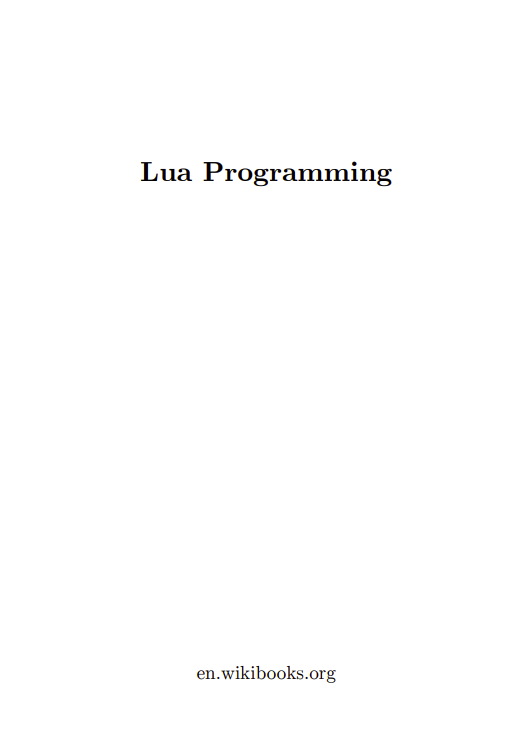Lua (not ”LUA”, which is incorrect although common) is a powerful, fast, lightweight and embeddable programming language. It is used by many frameworks, games and other applications. While it can be used by itself, it has been designed to be easy to embed in another application. It is implemented in ANSI C, a subset of the C programming language that is very portable, which means it can run on many systems and many devices where most other scripting languages would not be able to run. The purpose of this book is to teach Lua programming to anyone regardless of previous programming experience. The book can be used as an introduction to programming, for someone who has never programmed before, or as an introduction to Lua, for people who have programmed before but not in Lua. Since there are many development platforms and games that use Lua, this book can also be used to learn to use Lua and then to use it in that development platform.
This book aims to teach usage of the latest version of Lua. This means it will be attempted to regularly update it as new versions of Lua come out (Lua releases are infrequent enough that this should not be too difficult). Currently, the book is up-to-date for Lua 5.2, which is the previous version. If you are using Lua in an embedded environment that uses an older version of Lua in the 5.x branch (Lua 5.0 and Lua 5.1), the material should still be sufficiently relevant for you.
Lua was designed and is being maintained at the Pontifical Catholic University of Rio de Janeiro, which is located in Brazil. Its creators are Roberto Ierusalimschy, Waldemar Celes and Luiz Henrique de Figueiredo.





